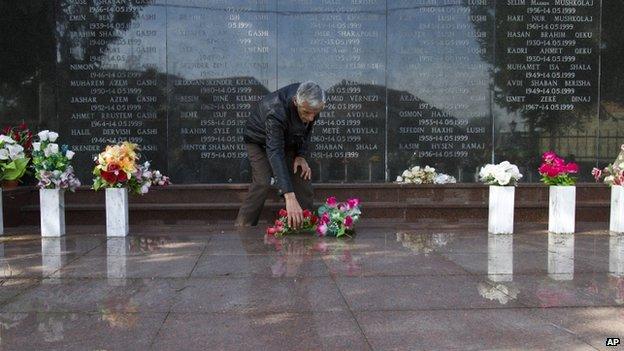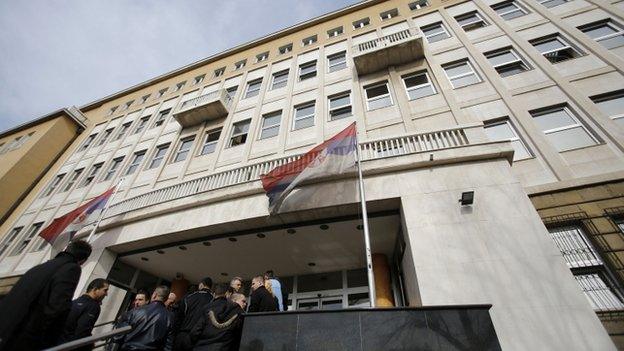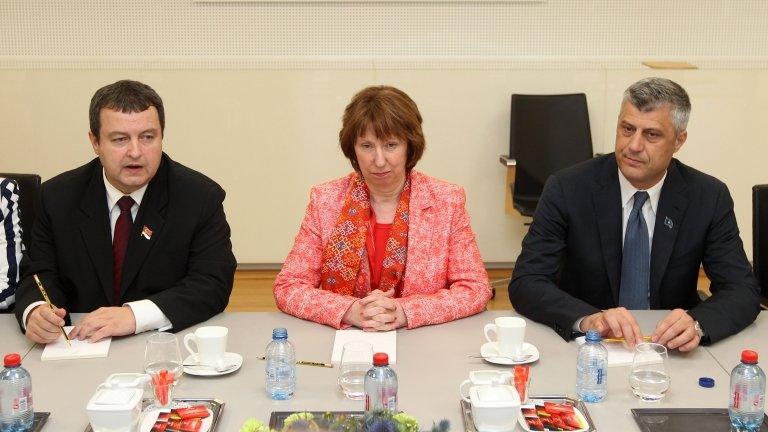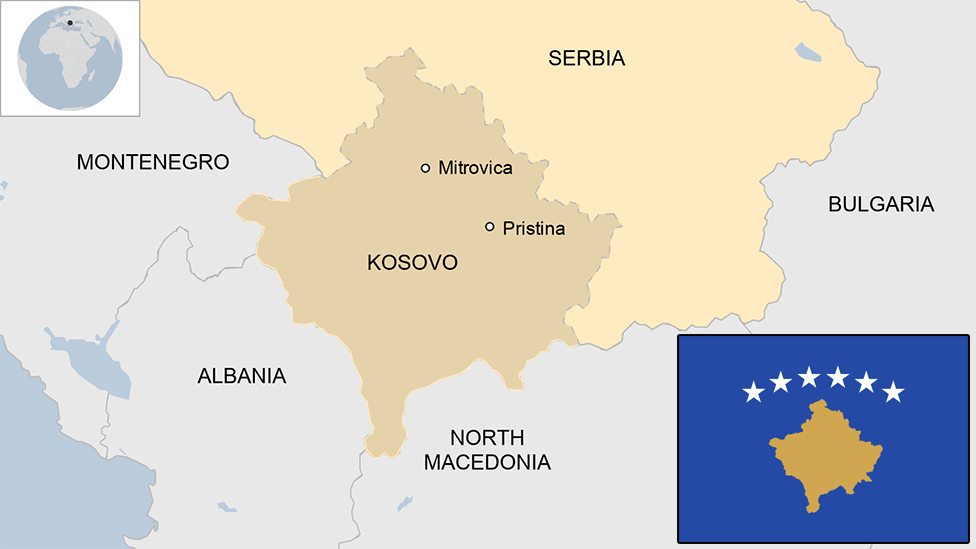Serbian ex-paramilitaries guilty of Kosovo killings
- Published

A memorial in the cemetery of Cuska village commemorates the victims of the massacre
Nine Serbian former paramilitaries have been found guilty of killing more than 100 ethnic Albanian civilians during the Kosovo conflict in the late 1990s.
A war crimes court in Serbia sentenced the ex-members of the so-called Jackals unit to up to 20 years in prison.
Prosecutors ruled that the men had raped, murdered and robbed victims in four villages in western Kosovo.
The crimes were among the most brutal of the 1998-99 war, in which ethnic Albanians fought against Serbian rule.
Serbian troops were driven out of Kosovo in 1999 following a Nato bombing campaign aimed at halting the violent repression of the province's ethnic Albanians, who constituted 90% of its two million population.
Kosovo declared independence in 2008 - a move which Serbia has refused to recognise.
'Extremely brutal'
Crimes committed by the Jackals include the massacre of 41 people in the village of Cuska in 1999.
Serb forces rounded up the residents and, after separating women and children from men, locked the male villagers into houses, where they were shot and set on fire.
"[The nine] committed murders, rapes and robberies in an extremely brutal way, with the main goal to spread fear among Albanian civilians in order to force them to leave their homes and flee to Albania," judge Snezana Nikolic Garotic said in her verdict.
The court in the Serbian capital, Belgrade, handed down jail sentences ranging from two to 20 years. Eleven paramilitaries had been on trial in the case, but two were cleared of all charges.

The war crimes tribunal in Belgrade has prosecuted hundreds of people over the past decade
The indictment of the Jackals was the result of an investigation by the war crimes prosecution in Belgrade, working with the EU mission in Kosovo.
Several other members of the paramilitary unit remain on the run and are being sought by Interpol, the BBC's Guy Delauney, in Belgrade, reports.
Some 120,000 ethnic Serbs live in Kosovo, which numbers 1.8 million inhabitants, most of whom are ethnic Albanians.
The 40,000 or so Kosovo Serbs living in the north reject Kosovo's independence.
Despite this, Kosovo has been recognised by more than 100 countries, including the United States and most EU states.
- Published11 September 2010
- Published19 April 2013

- Published28 June 2023
